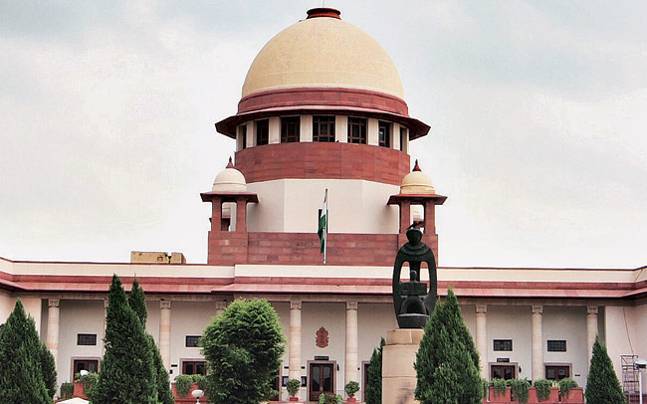The Supreme Court has turned down a plea seeking to debar those who have been convicted in criminal cases and prohibited from contesting elections from heading or starting political parties.
Responding to a petition filed by advocate Ashwini Upadhyay, a SC bench comprising Chief Justice of India Dipak Misra and Justices A M Khanwilkar and D Y Chandrachud , asked that the government and the Parliament instead look into the matter.
Such Orders Would Restrain Free Speech
The court pointed out that if a convicted individual is barred from heading a party by judicial orders , it would be “incongruent with free speech”.
The petitioner had noted that currently persons convicted in serious crimes are still able to form and lead political parties despite being barred from elections, referring to examples of Sasikala, Jagan Reddy, Mulayam Singh Yadav, and Lalu Prasad among several others.
Despite this, the court was firm in its stance that the right to free speech extended to even those with convicted people.
Senior advocates Sidharth Luthra and Sajan Poovaiya appearing on behalf of the petitioner then argued that the the SC must evaluate the provisions of the Representation of the People Act, 1951, that gives the Election Commission the authority to register a political party without giving corresponding authority to de-register them.
Luthra pointed out that the proliferation seen in the country of political parties was a cause for concern, and the national committee reviewing the working of the Constitution had earlier suggested that a statutory framework be developed for registration and also the de-registration of parties.
He further highlighted that in 2004 itself the Election Commission has recommended that an amendment be made to Section 29A of the RP Act to give it power to regulate the registration/de-registration of political parties.
SC Agrees To Review Issue Regarding De-Registering Political Parties
The SC subsequently agreed to review the issue of empowering EC to de-register political parties in appropriate situations and has sought responses from the both the Centre and EC.
In 2016, the EC had delisted a few political parties that had existed on paper alone without contesting any elections since 2005. This was done via special powers and can be contested in court.





